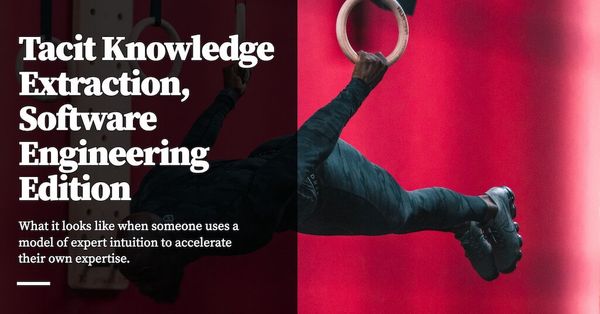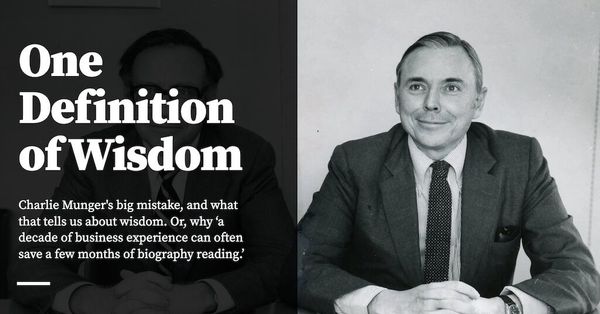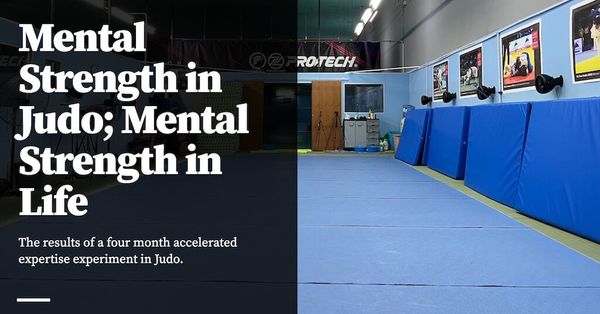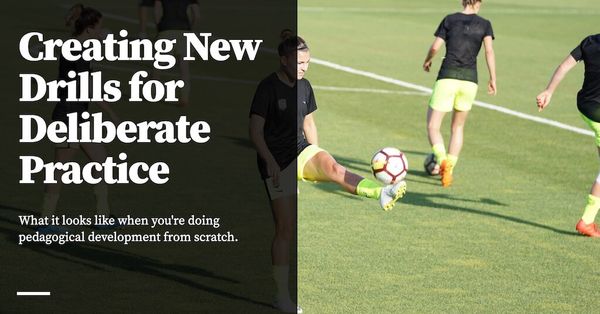When I was in university, I read an essay that went something along the lines of: “Keep a reading list. University will be a time of discovery and exposure: you’ll learn of more authors and ideas that you can ever keep up with, and you won’t have time to read any of them. Save the books for after your graduation — your career will afford you more time for reading than your university life ever will.”
Well … I’ve never found that to be true.
If you're reading this, you probably work a demanding job, and you probably don’t have a lot of time to read. You've also likely wondered if it’s possible to hit a reading goal that you’ve set for yourself; you can barely gather the energy to pick a book up after a full day of work.
(If you've never thought these things ... good god I'd love to be you!)
In my One Book a Week Guide, I wrote that I aimed to read 48 books in 2018 — a first for me. I wrote that guide a couple of months in, after systematically testing a number of ‘how to read’ techniques, gathered from books and blog posts. I hit my 48th book on the 23rd of December, and ended the year at 51. I’d like to make a case that you should consider doing a quantified reading goal for the year — if a book a week sounds too daunting, just start with something small, like 10 books for 2019, for instance, and spend a bit of time pursuing this goal to show yourself that it can be done.
(10 books isn’t much given that we’re still in March; assuming that you read around a book a month, you should be up to that number by December.)
It’s easy to sort of wave one’s hand and say “oh, tracking quantifiables isn’t the point of reading books — you should be reading for pleasure, or learning, or <insert morally positive value here>” … and you’ll be right, but I want to make the case that tracking your reading serves as a good head-fake for pleasure, or learning, or <insert morally positive value here>; your goal is the knowledge from reading, but the way to get there is to track against some number that you keep track of on a day-to-day basis.
I never thought that I’d be able to read that many books — the number I set last year appeared ridiculous to me even as I wrote about it on Commonplace, and in truth it wasn't one that I expected to hit. But now that I’ve surpassed it, I’ve found that setting a book-reading target isn’t as scary as I thought it would be.
Here’s what I’ve learnt from the experience.
Use Narrative to Your Advantage
I didn’t spend all of my book quota last year reading non-fiction. In fact, nearly half of the books I read was fiction, and I was reminded of the ease with which human brains take to narratives.
There’s a fairly popular science trope that our brains are evolved to consume stories: do a casual google and you’ll find articles telling us that reading stories changes the human brain in a fundamental way; that storytelling has its roots in neurobiology (and that this is relevant to business contexts); that social media scheduling app Buffer increased sign-ups using storytelling instead of sales-style benefits.
I’ll leave aside the veracity of such claims and focus on the lived experience — on this front, at least, there wasn’t much of a competition. Novels felt effortless to read; non-fiction idea books took quite a toll on my energy levels. This mattered to me because my reading occured at night on weekdays, which in turn meant that I was too darned tired to make sense of serious ‘idea books’ for the majority of my reading time. (I could attack fairly heavy books on weekends, but only if I did so during the day, and after a large mug of coffee).
At some point during the year I began to wonder if I could leverage narrative reading to my advantage. I started reading biographies and other partially-narrative non-fiction books, driven by the notion that such narrative-driven books would be easier to read during the evenings after a long day at work. This turned out a lot better than expected: I finished Titan (an 800 page biography of J.D. Rockefeller) in this manner, and then moved on a number of narrative-driven non-fiction picks, the most important of which was Creative Selection — a book on Apple’s software development in the time of Steve Jobs.
I think there’s something to be said for reading narrative non-fiction: it isn’t that taxing on the mind, and the fact that it’s non-fiction means that it retains educational value. The most useful thing I got out of the narrative non-fiction picks I’d read over the course of 2018 was a sense of place — a context onto which I could graft contemporary events. To a displaced observer, the 2018 antitrust whispers against tech companies might seem extraordinary; to a reader familiar with America’s gilded age, such whispers of antitrust merely fit into a decades-old pattern, one that exists alongside the growth of any new industry.
Finding Interesting Questions
One trick that I’ve found rather helpful is to frame a reading project as a journey for interesting questions. Mortimer Adler’s How to Read a Book calls the highest level of reading ‘syntopical reading’, and argues that this level is the ability to place an author’s argument in a larger context, given what others have written or argued about the subject.
This is well and good, but — from experience — doesn’t itself provide a motivating drive to read around a book. A search for interesting questions (and later answers!) does.
Let’s say that you’re interested in the field of judgment and decision making, and you’ve just started out on the literature. Picking a provisional list of interesting questions to guide your reading is often a good first step — and may start from when you pick up your very first book. A handful of questions spring to my mind for this particular topic:
- How are some real-world practitioners able to achieve superior outcomes despite having less demonstrable rationality?
- What good is expertise? When can it be trusted, and when can it not?
- What makes for a good decision? How do you measure this in the real world, where luck is a confounding variable?
Such questions have served as guardrails for my reading for well over a year now, and have led to several ideas I wrote about in my framework for putting mental models to practice.
I think this frame of ‘find interesting questions to ask, and then search for the answers’ is generally useful, and it's how I conduct much of my reading today. A few examples to demonstrate: I’ve been dipping my toes into the life and times of Lee Kuan Yew for the past couple of years, with the question: “what was LKY’s balance of idealism and pragmatism, and how much of his philosophy should I apply to my life?” as a guide; recently I’ve been reading up on Warren Buffett, with the specific question of “how does Buffett balance between greedy capital deployment and stakeholder considerations?” serving as my signposts. (So far, the answer seems to be: ‘for as long as a business generates cash, even if it does poorly’; it satisfies me that Roger Lowenstein thought to ask this question while writing Buffett: The Making of an American Capitalist).
Perhaps the most surprising thing I’ve learnt in 2018 is that the really interesting questions in a given subject area aren’t obvious to an outsider. It usually takes a book or two for the questions to emerge; once they do, reading in the subject area takes on the properties of an exhilarating hunt for truth.
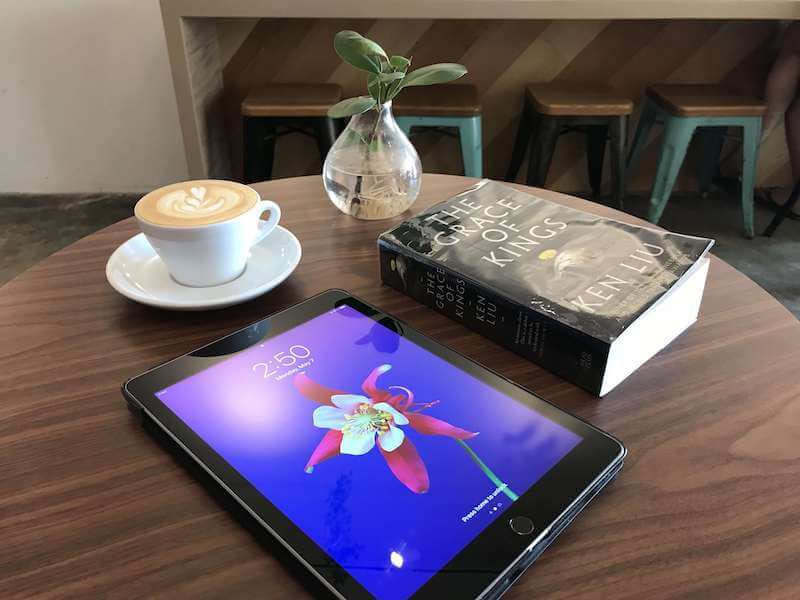
How I Summarise
In The 3 Kinds of Non-Fiction I wrote that you could speed-read ????branch books using a reading technique copied from Peter Bregman: basically, recognise that branch books have an argument to make and a certain structure to make that argument; once you understand the structure, skip past segments that repeat themselves. I then observed that many branch books were bad due to the quirks of the modern publishing industry:
My personal suspicion is that badly written branch books are a reflection of the thought-leader-speaker industry. These authors have one good idea, and need to pad out 200 pages of paper in order to gain access to the highly lucrative world of conference speaking.
The best approach with these kinds of books are to: buy them second hand, read them quickly, or to read a summary ... which is to say: to not read them at all.
One of the side-benefits that emerged from my reading challenge last year was an effort to publish a number of comprehensive summaries of career-moat books I’d read. Those summaries were done using a technique that built upon Bregman’s approach, and it’s resulted in some very readable pieces — pieces that now double as reference artefacts of my reading experience.
So how did I write them?
The trick that I settled on is one that I think emerges rather logically from Bregman’s technique: a progressive, chapter-by-chapter summary of the book as I worked my way through it. I've mentioned in my reading guide that I read non-fiction idea-books on paper or on an iDevice (I have an iPhone 7 and a 6th generation iPad) — both are good mediums for highlighting books as you go. At the end of each chapter, I'd write a chapter-level summary; when it came time to write the overall book summary, I would refer to the chapter-level summaries I’d written, pausing only to check certain highlights if I wasn't sure of the specific sub-point the author was making.
The primary benefit of this technique was that I could ‘chunk’ the pieces of an author’s argument, and zoom in or out as necessary to see the overall thrust of a book’s argumentation. This has allowed me to keep the ‘entire’ book in my head at the point where I sat down to write the summary; it also meant that I was engaged with the ideas at a level deeper than I would if I were to read sans highlighter.
The flip side, of course, is that reading this way was very cognitively taxing; I found that I couldn't do more than an hour or two of active reading per session. It also meant that I wasn't able be able to read serious non-fiction at the end of a working day; consequently, all books that I summarised were the result of weekend reading alone.
Tracking REALLY Helps
The last thing that I’ve found super helpful during my 2018 attempt was the act of tracking my reading.
This was the first time I used any sort of measurement for my reading goals. I used Goodread’s nifty “Reading Challenge” feature, and had this constant whisper at the back of my head going “it’s November now; you’re still 9 books away from your goal, buck up!” which probably wasn’t healthy but was incredibly motivating.
The startup investor Paul Graham has this thing where he says “you make what you measure”. (Graham says he got this from Joe Kraus, who in turn thinks he got it from either Bill Hewlett or David Packard; Kraus isn’t too sure.) I’ve found this to be as true in personal development as it is in startups. Graham writes:
Merely measuring something has an uncanny tendency to improve it. If you want to make your user numbers go up, put a big piece of paper on your wall and every day plot the number of users. You'll be delighted when it goes up and disappointed when it goes down. Pretty soon you'll start noticing what makes the number go up, and you'll start to do more of that. Corollary: be careful what you measure.
I’m not entirely sure how to track ‘growth of knowledge’, but ‘number of books completed’ and ‘number of pages read’ sure make for some compelling metrics. The challenge is what pushes me to reach for a book at times where I might otherwise check Twitter.
Wrapping Up
A final note on setting a quantified goal: you’ve probably seen the blog posts warning against ‘number of books finished’ as a metric to track; these bloggers have attempted crazy stretch goals of 100 books or more, but then backed down when they realised they weren’t retaining much of what they read. I think it’s important to remember that the number is the head-fake, not the goal. The goal is knowledge; the number is merely what gets you there.
I also think you’ll be surprised at how enjoyable it is to build and maintain a reading habit. I’ve found myself mildly annoyed when checking Twitter or even when reading long-form articles over the past couple of months; books tend to be more enjoyable — especially if framed as a hunt for answers to interesting questions. This framing wasn’t something I expected when I started the 2018 challenge.
I'm doing 52 books for 2019, and I'm 13 books in. I expect to write more on what I’ve learnt at the start of next year. Do give this a try, though, I think you'll be pleasantly surprised. Godspeed, and good luck.
Originally published , last updated .


